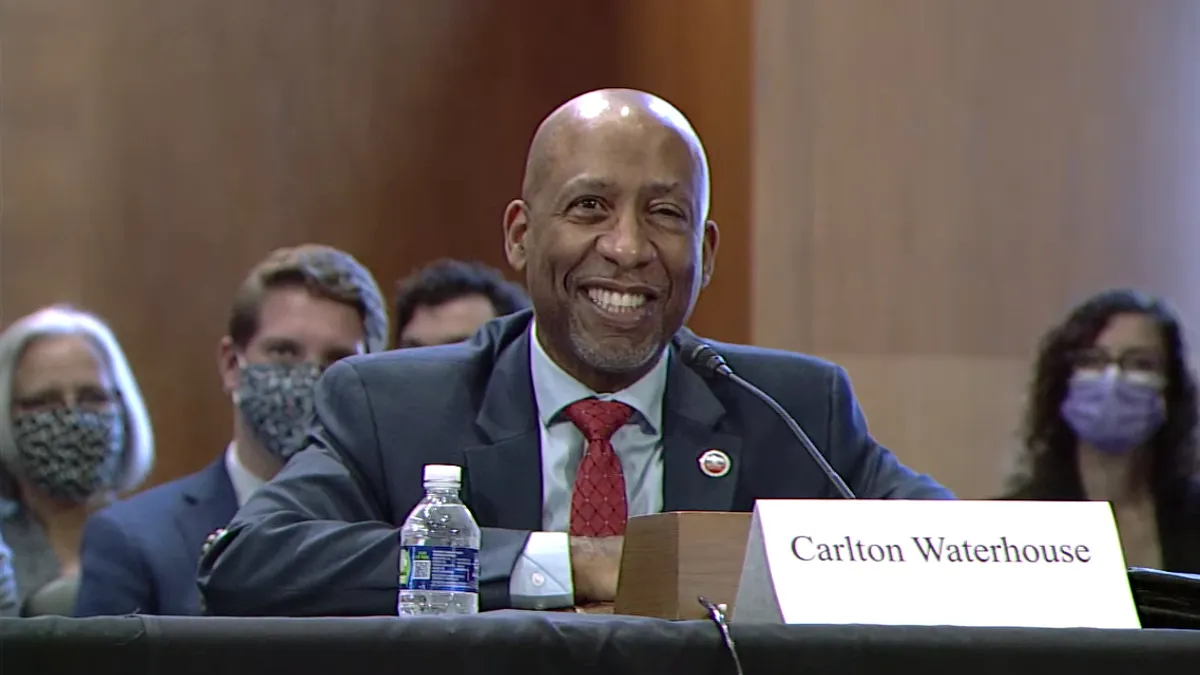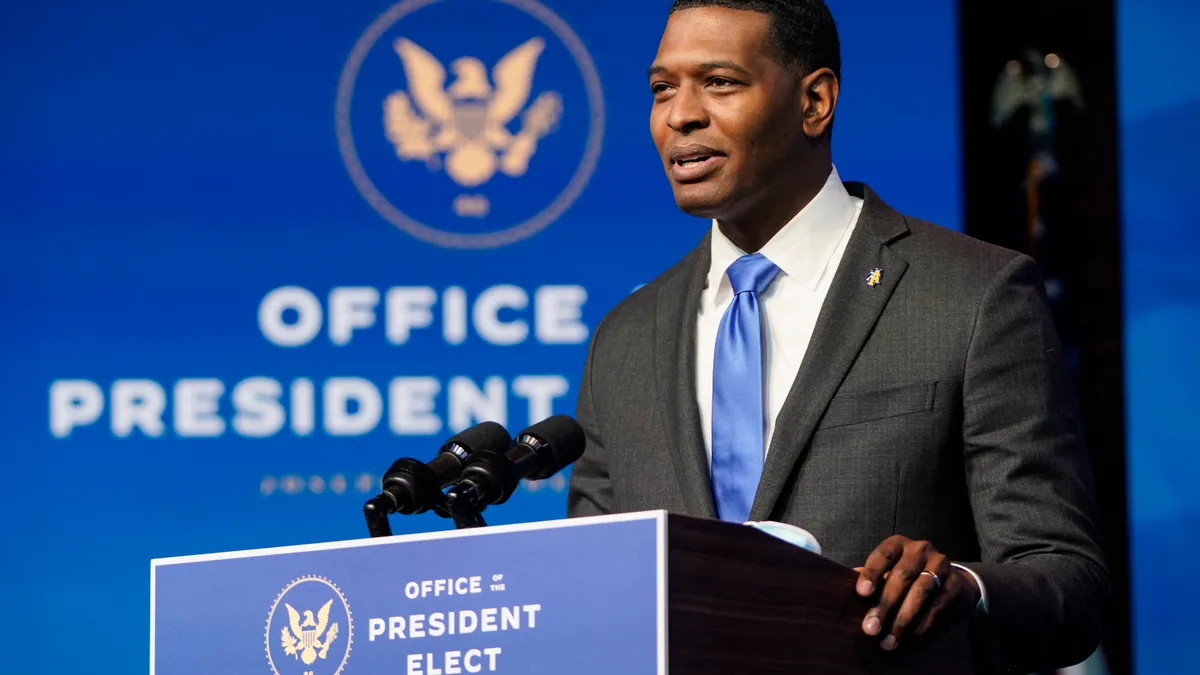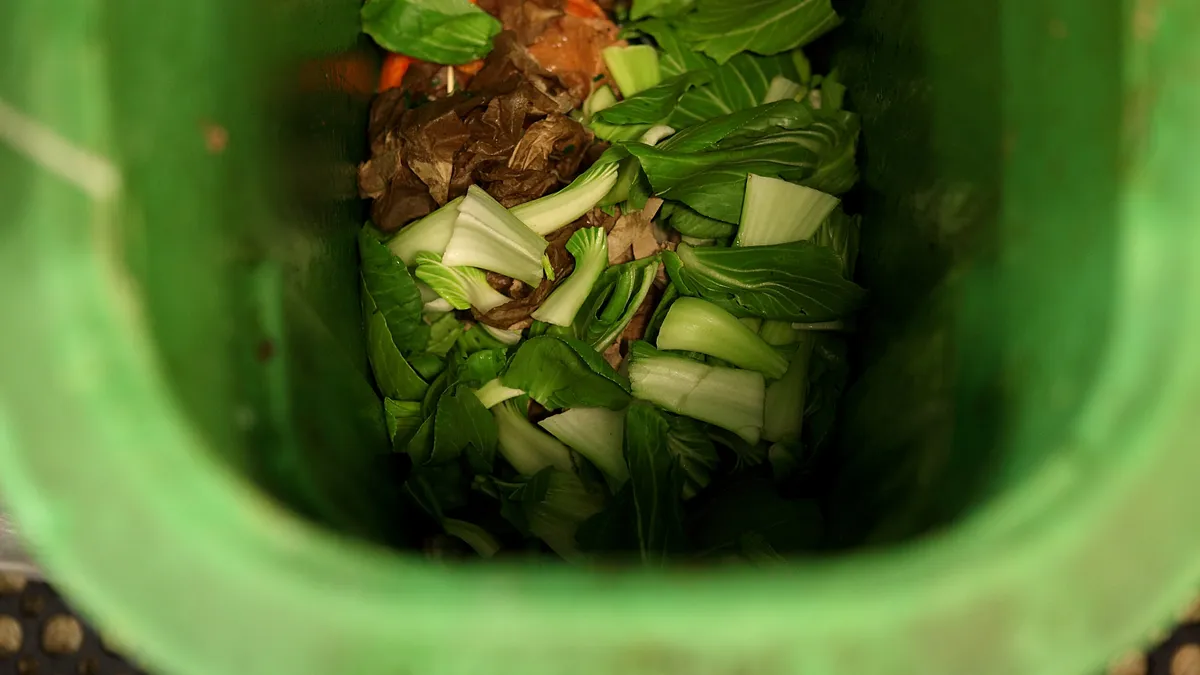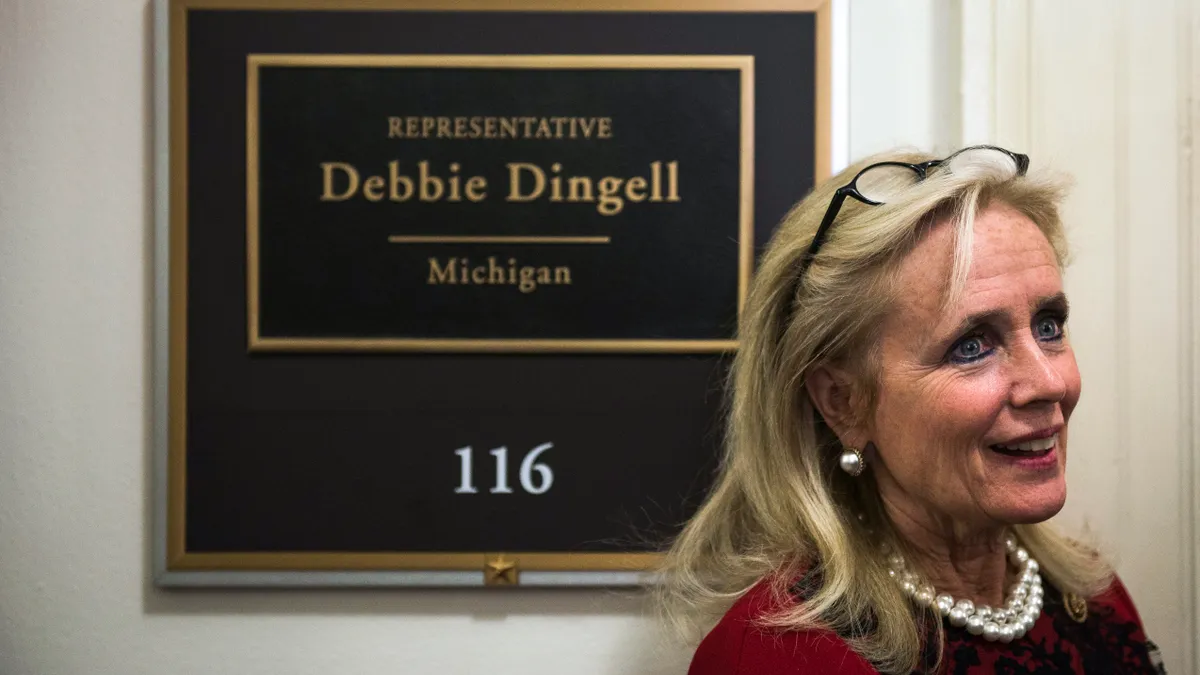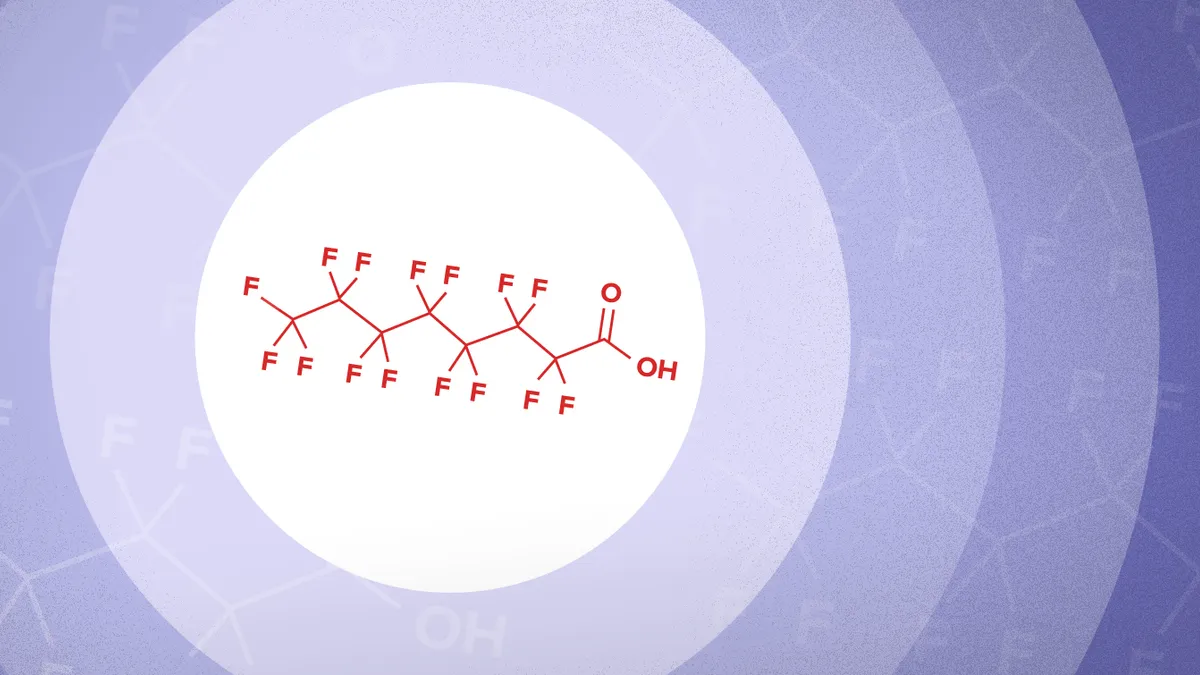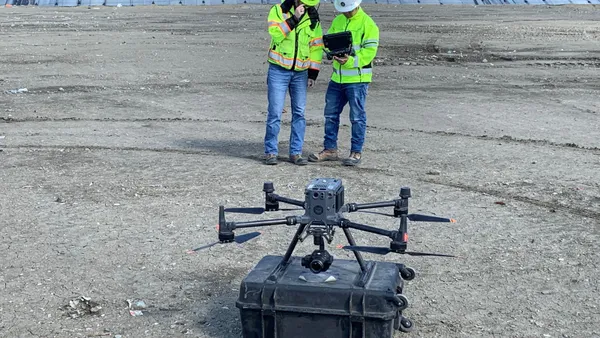UPDATE: Dec. 1, 2021: The Senate Committee on Environment and Public Works has voted 10-10 to report Carlton Waterhouse’s nomination as the assistant administrator of the U.S. EPA’s Office of Land and Emergency Management (OLEM). The tie vote will now go to the Senate floor.
Sen. Tom Carper (D-Del.), chairman of the committee, said he was "impressed with the competence and passion" of all nominees under consideration at the day's meeting. Sen. Shelley Moore Capito (R-W.Va.), a ranking member of the committee, did not support the nomination. “I am not assured that he can approach his job from an unbiased perspective, especially when addressing the energy sector,” she said.
Dive Brief:
- September 16: Carlton Waterhouse, the nominee for U.S. EPA’s OLEM assistant administrator, said the agency is working “as quickly as we can” to designate certain PFAS chemicals as hazardous substances. He named PFAS management among his top priorities during a Senate confirmation hearing on Wednesday.
- Waterhouse, currently OLEM's deputy assistant administrator, said swift rulemaking is necessary to give the EPA more authority to respond to PFAS contamination issues “that are causing a threat to our community and country.”
- If confirmed, Waterhouse said he would continue supporting programs meant to protect disadvantaged communities from air and water pollution and revitalize areas harmed by such pollution through efforts like the EPA’s brownfield remediation program.
Dive Insight:
If confirmed, Waterhouse will be part of the Biden administration’s larger efforts to address climate change, manage PFAS and bolster environmental justice efforts. Waterhouse’s nomination hearing follows the confirmation of EPA Administrator Michael Regan in March. Regan also has a background in environmental justice work and recently created an EPA Council on PFAS.
Waterhouse has represented the EPA as a lawyer specializing in environmental justice cases, and he has a background in Superfund and Resource Conservation and Recovery Act programs. In the 1990s, he worked with state officials to obtain the country’s first approvals for Subtitle D landfills, which include MSW landfills.
During the hearing before the Senate Committee on Environment and Public Works, Waterhouse acknowledged that many communities have deep concerns about how per- and polyfluoroalkyl substances (PFAS) show up in water and land, and assured attendees that the EPA would “ensure that we're following the science and following the law” when crafting PFAS-related rules or designations.
In a speech during a conference hosted by the Solid Waste Association of North America (SWANA) in June, Waterhouse called on landfill operators to do their part in mitigating greenhouse gas emissions, controlling PFAS and centering environmental justice efforts in the process. Absent EPA-led PFAS regulations or more local rules, some landfill operators feel they are in limbo over how to handle PFAS at their facilities in the future.
David Biderman, SWANA’s executive director, said he had not had an opportunity to review Waterhouse’s comments from the Wednesday confirmation hearing, but said the association was “looking forward to working closely” with him in the future. SWANA has invited him to speak again at another upcoming conference in November.
The National Waste & Recycling Association said in a statement that "we look forward to working with Mr. Waterhouse on issues of mutual interest."
In the hearing, Waterhouse said personal experiences facing racism and discrimination shaped his motivations for working on environmental justice issues. He was inspired to enroll in Howard University’s law school to study civil rights and the environment “because of the Christian imperative that we will protect people in need and act as stewards of the world."
Waterhouse is known for speaking openly about the disproportionate impact pollution has on Black residents, though some Republicans and conservative organizations have criticized his views on the issue, The Hill reported.
The EPA recently released a report outlining how people living in historically underserved communities, particularly people of color, have fewer resources to help them prepare for and recover from climate change-related extreme weather events such as flooding and air pollution.
Waterhouse also pointed to EPA efforts to work more closely with underserved communities on solid waste management programs, most recently the Wind River Reservation in Wyoming, which is home to the Eastern Shoshone and the Northern Arapaho tribes.
He also touted the EPA’s brownfields program meant to revitalize and redevelop contaminated sites, saying more resources could help get sites cleaned up “more quickly and efficiently… so that we can make sure that communities aren't suffering environmental injustices from being overburdened with pollution.”
Longtime EPA official Barry Breen is currently serving as OLEM's acting assistant administrator. Previous Senate-confirmed assistant administrators at OLEM include Peter Wright (a former Dow Chemical attorney who served under President Donald Trump) and Mathy Stanislaus (a former environmental attorney and chemical engineer working for nonprofit groups who served under President Barack Obama).



